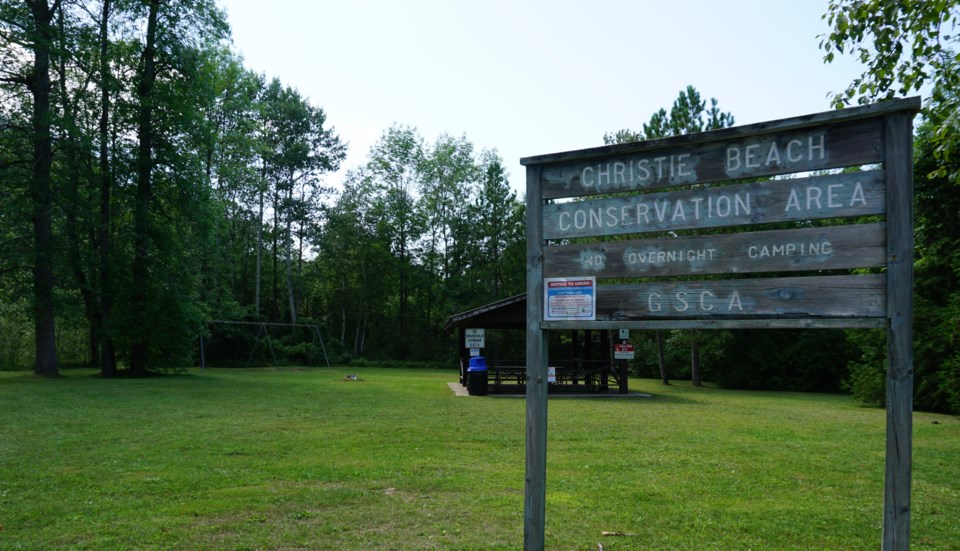The bill that contained contentious changes to the Conservation Authorities Act (CAA) has passed and the province is now launching a related working group.
“Bill 229 received the third reading and Royal Assent on Dec. 8, and it is law now,” said Tim Lanthier, CAO for Grey Sauble Conservation Authority (GSCA).
Lanthier says one of the biggest areas of concern in the new regulations is in regards to Ministerial Zoning Orders (MZO).
“Under the newest iteration of the Act, a Conservation Authority is now required to issue a permit if the Minister of Municipal Affairs and Housing issues an MZO,” Lanthier said.
“In essence, worst-case scenario, a development could receive approval through an MZO to occur in areas of natural hazard - say a floodplain or erosion-prone area. And the Conservation Authority would be required under legislation to issue a permit for that development to occur in that area, contrary to all of our policies and all of our technical guidance,” he explained.
He adds that under the Act, the CA would have the ability to add conditions to the said permit, but “those conditions and agreements can be appealed by the Minister.”
The legislative changes impacting the CAA were introduced through Bill 229, Protect, Support and Recover from COVID-19 Act, 2020.
Lanthier had been vocal about his disappointment in the proposed changes when they were released in early-November.
“We took a lot of action on this in terms of letter-writing campaigns, reaching out to partners and stakeholders, reaching out to each of our municipalities, reaching out to the Premier, Minister Yurek, and Ministers Clark and Philips, as well as our local MPs.” he said.
Bill 229 included amendments to the CAA such as:
- Enabling officers appointed by conservation authorities to issue stop work orders, defined in a way that is consistent with entry powers without warrants
- Requiring 70 per cent of members appointed to a conservation authority by a participating municipality be members of council, as well as allowing the Minister of the Environment, Conservation and Parks to provide an exception from this rule at the request of a municipality
- Allowing conservation authorities to appeal or be party to an appeal as a public body, under certain provisions of the Planning Act in the context of prescribed natural hazards matters
- Subsection 28.1 (8) of the Act currently allows a person who applied to a conservation authority for a permit under subsection 28.1 (1) to appeal that decision to the Minister if the authority has refused the permit or issued it subject to conditions
Kim Gavine, general manager of Conservation Ontario says the Budget Bill is all about financial recovery from pandemic conditions and "this could have easily been accomplished in ways that didn’t sacrifice Ontario’s environment and our unique watershed approach.”
“A more proactive approach may have been to use this bill to support the development of a stream of new, greener economic activities that would boost the economy and help to build environmental resilience, not break it down,” Gavine stated in a press release.
With Bill 229 now passed, on Wednesday, the provincial government announced its plans to pursue a Conservation Authority Working Group.
"As we move forward together, we want to build stronger relationships with conservation authorities so we can work together to ensure consistent best practices, good governance and appropriate accountability to best serve the people of Ontario," said Jeff Yurek, Minister of the Environment, Conservation and Parks in a press release.
According to the provincial news release, Hassaan Basit, president and CEO of Conservation Halton, will chair this group to provide input on proposed regulations development under the CAA, and on how conservation authorities are governed.
"Partnerships and collaboration are critical to ensure that conservation authorities can continue making watershed-based resource management decisions in the interest of the environment, health, and safety," said Basit.
The working group is expected to be formed early in the new year and will provide input to help the province develop regulations that will focus on:
- The mandatory core programs and services conservation authorities would be required to provide
- The agreements between municipalities and conservation authorities and the transition period associated with non-mandatory programs and services
- How local members of the community can participate in their conservation authorities through community advisory boards
In terms of the new working group, Lanthier says he is hopeful the province follows through.
“We hope that this happens, we hope that it's as inclusive as he [the Minister] is making it sound. And we'll have to see where that goes,” Lanthier said.
The province will also be seeking the public's feedback on regulatory and governance proposals through the Environmental Registry.
Public consultation on these proposals is expected to begin early in the new year.



